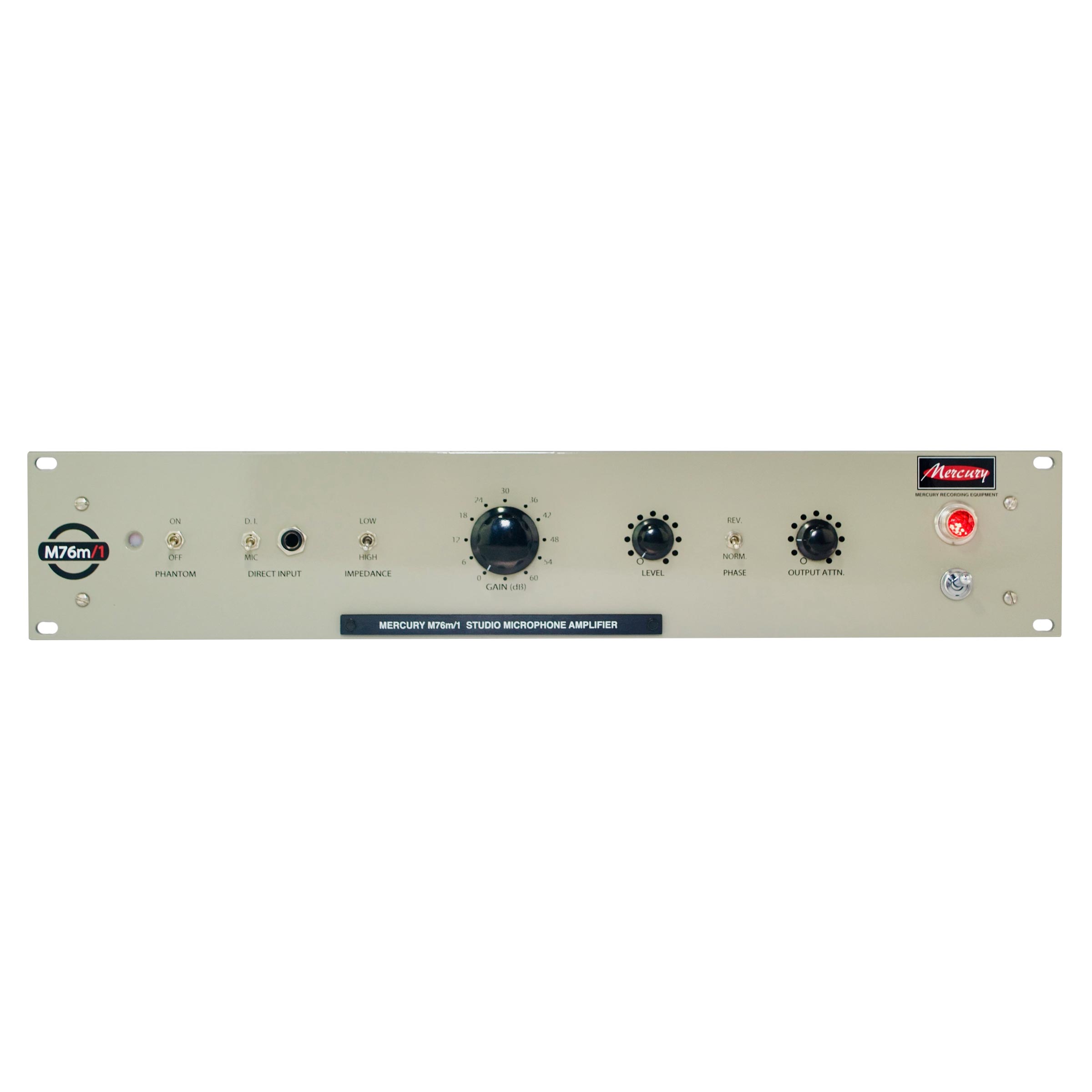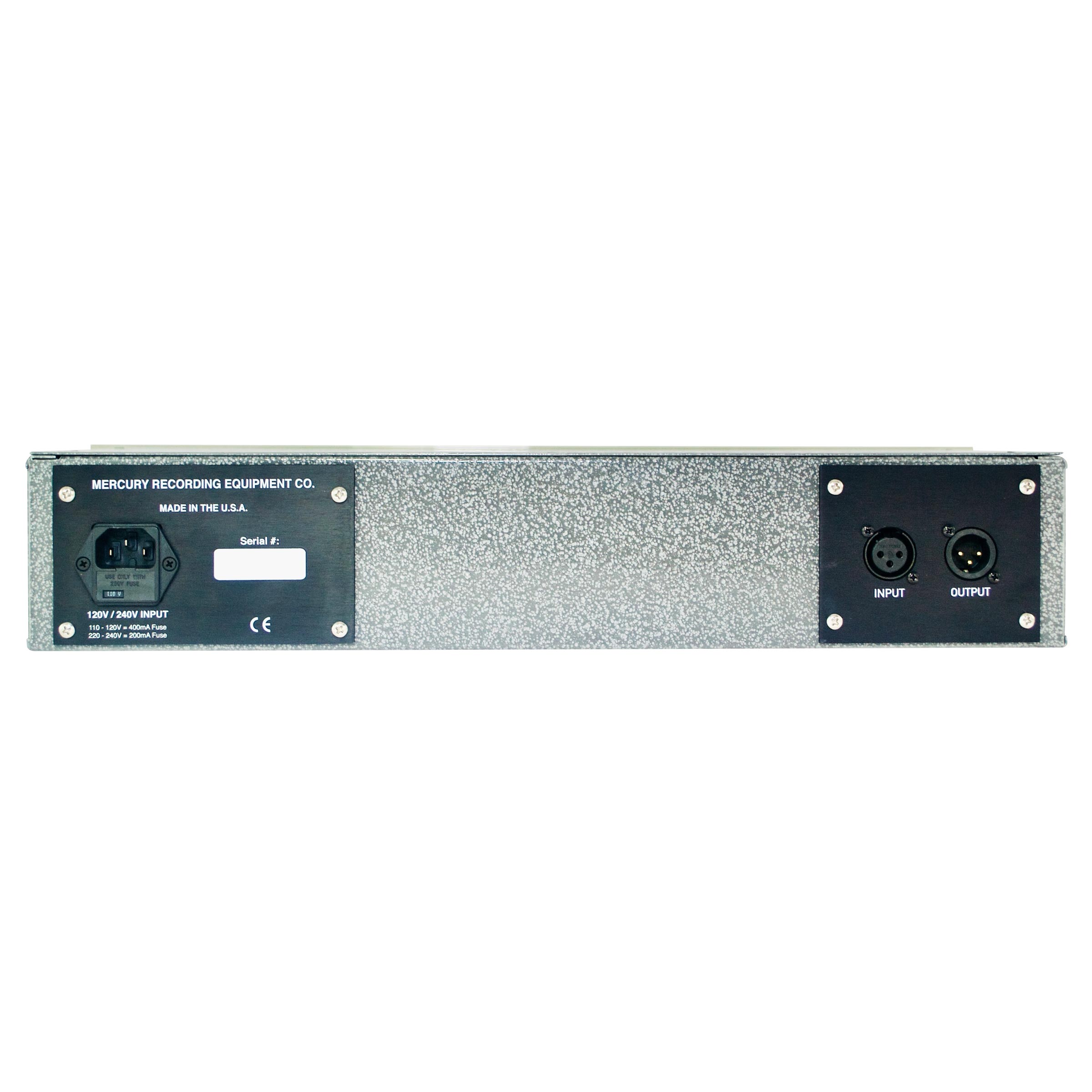Mercury M76m/1 Mk. IV Single Channel Microphone Preamplifier
The Mercury M76m/1 Mk. IV is the latest version of the studio microphone amplifier from Mercury. This benchmark amplifier is based on the highly sought-after vintage Telefunken/Siemens V76m amplifier modules, which were widely used in European broadcast and recording studios during the late 1950s and 60s. Despite the advent of transistor consoles, the V76 modules continued to be used as outboard mic amps in studios worldwide.
The M76m/1 is designed to bring back the vintage tone, craftsmanship, and feel that inspired Mercury to manufacture recording equipment and keep beloved circuits alive for future generations. The new M76m/1 Mk. IV boasts the same exact tone and warmth as its predecessors, utilizing the same circuit, quality parts, and transformers used in their original M76m at Mercury Recording Equipment. While some vintage-inspired aesthetic extras have been stripped away, the M76m Mk. IV remains a top-of-the-line amplifier that is sure to inspire musicians and recording engineers alike.
The Mercury M76m is a rare gem, based on amplifier modules that were used in consoles that were manufactured in minimal quantities over 50 years ago. As a result, these modules have become extremely rare, expensive, and in some cases, require extensive repairs.
With over 20 years of experience in repairing, rebuilding, and listening to the Telefunken/Siemens V76 modules, Mercury’s top priority was to create a modern Studio Microphone Amplifier that replicates the original sound. The M76m preserves the integrity of the original circuit, delivering the same open, warm tonality using transformer-balanced, dual-stage, high-gain amplifiers, and featuring four transformers and four tubes per channel.
Mercury has been able to capture not only the behavior but also the overall sound of the original units. The Mercury M76m/1 offers modern features such as Phantom, Phase, Level Control, and a High/Low Impedance switch, which were never available on any module or custom racked units. It is the benchmark of modern tube microphone amplifiers that delivers exceptional performance and sound quality.
The Gain Control of the Mercury M76m/1 ranges from 0 to +60dB in 6dB increments, which works in conjunction with the Level Control and Output Attenuation. The Level Control acts as a fader that increases (clockwise) or decreases (counter-clockwise) the amount of gain from the first stage to the second stage of the amplifier. This feature allows you to add musical (tube) “break up” by decreasing the level control and increasing the coarse gain. Additionally, an Output Attenuation Control (-0 to -10dB) has been added for even more control, including the ability to shape tones in several different ways, which works well on electric guitar recordings.
Specifications:
- Mic Input Impedance: Approx. 2k
- Suggested Source Impedance: Approx. 200 ohms
- Input Impedance with -28dB Pad: Approx. 4k
- DI Input Impedance: 2M ohms
- Internal Output Impedance: 30-50 ohms (depends on gain setting)
- Suggested Minimum Load: 500 ohms
- Max. Mic Signal Input Level (@ 20 Hz): +34dBu with -28dB Pad engaged / +6dBu with Pad not engaged
- Max. Output Level: +22dBu
- Frequency Response: 20 Hz to 20 kHz +/- 0.5dB
- Harmonic Distortion: All musically related low orders of harmonics, with no significant order above 5th

